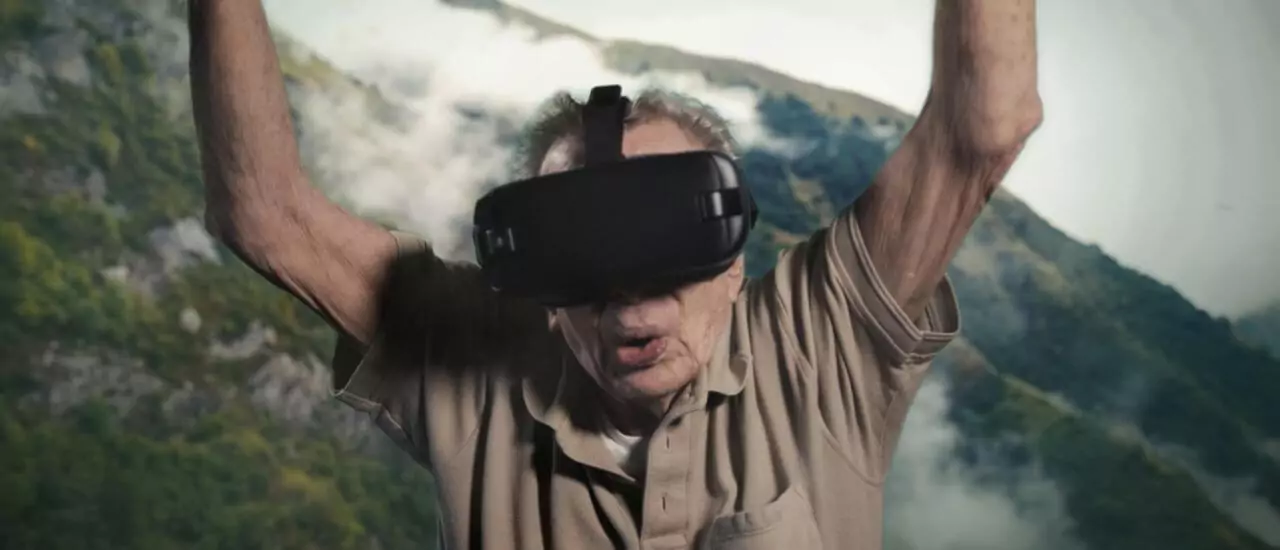When we think of cutting-edge technology, senior citizens aren’t often the first to come to mind. However, a new technology has captivated both young and elderly audiences. Virtual Reality (VR) is a technology that simulates the experience of being in a different time and place, allowing its user to visualize and feel like they’re in a completely altered environment. Traditionally, technology has been intimidating for the baby boomer generation, 10,000 of which turn 65 each day. Virtual Reality has already entered into the senior living industry, being used within retirement communities to help reduce loneliness, improve medical care and provide adventure and stimulation for seniors.
VR Brings Retirement Community Tours to Life
Some retirement communities are turning to Virtual Reality to show prospective residents what their future homes will look and feel like. Instead of opting for in-person tours during COVID-19, some senior living communities have used VR to give tours of their living spaces to prospective residents and their families. VR tours can also be helpful for seniors who are preparing for a cross-country move and are unable to visit in person. By simulating the environment of a retirement community, VR can help eliminate the fear of change, help establish a memorable experience of the facility, and remove the fear of the unknown.
Improving Medical Care
In addition to using VR as a way to market to prospective residents, this cutting-edge technology is already being used to improve medical care within retirement communities. VR can ease physical pain by providing a distraction during medical procedures that might be uncomfortable or anxiety-inducing. Researchers have also suggested that this technology can be used to improve cognitive health in older adults. In fact, a study from the University of Maryland reported an 8.8 percent improvement in overall accuracy when using VR to learn new information. VR can also help older adults retrain their motor and cognitive skills, allowing them to build new motor and mental skills. In addition, another recent study has suggested that VR can also improve balance and strengthen the neural connectors that support our sensory, motor and cognitive skills.
Some researchers are using VR games to detect a decline in memory and spatial reasoning, both of which are linked to Alzheimer’s and other forms of dementia. Doctors can more easily detect these health issues in VR games, where players have to orient themselves in different setting, when compared to clinical environments.
Confronting Social Isolation in the Elderly
A new report from the National Academies of Sciences, Engineering and Medicine suggests that more than one-fourth of adults aged 65 and older have reported feeling socially isolated. In addition, according to the Centers for Disease Control and Prevention, “Older adults are at an increased risk for social isolation and loneliness because they are more likely to face factors such as living alone, the loss of family or friends, chronic illness and hearing loss.” Decline in hearing and low-vision can make interacting with others and enjoying new experiences feel difficult. When left untreated, long-term isolation can increase the risk of depression, anxiety, heart disease, and high blood pressure.
To combat social isolation, Alcove, a lab built by AARP Innovation Labs, has created an interactive and immersive VR environment that allows seniors and their families to explore VR spaces together, bridging the physical distance between family members, especially for those who live long-distance.
As baby boomers continue to enter into retirement, the adoption of Virtual Reality technologies will help bridge the gap in healthcare and ease the demand on care providers. Within the coming years, we can expect to see Virtual Reality become the new norm for the senior care industry.


